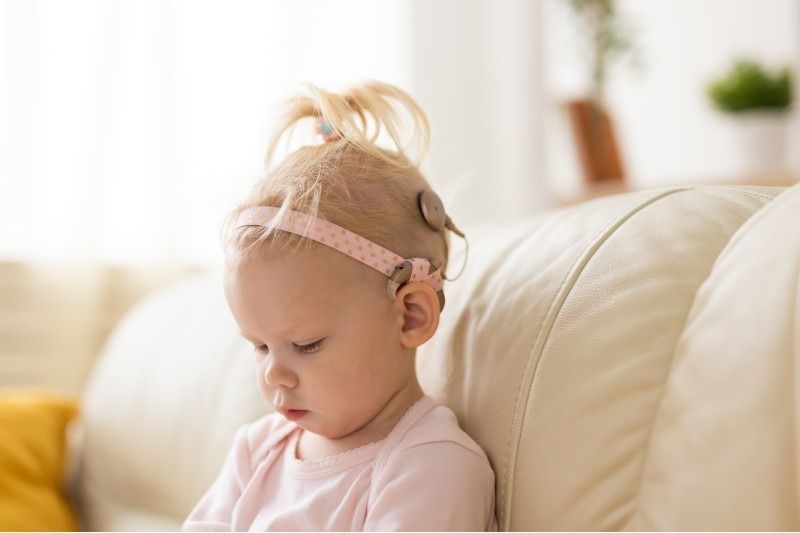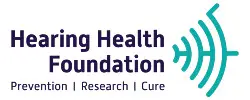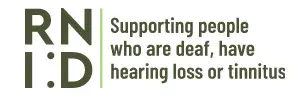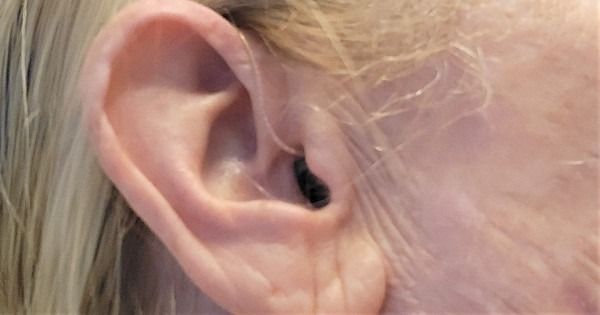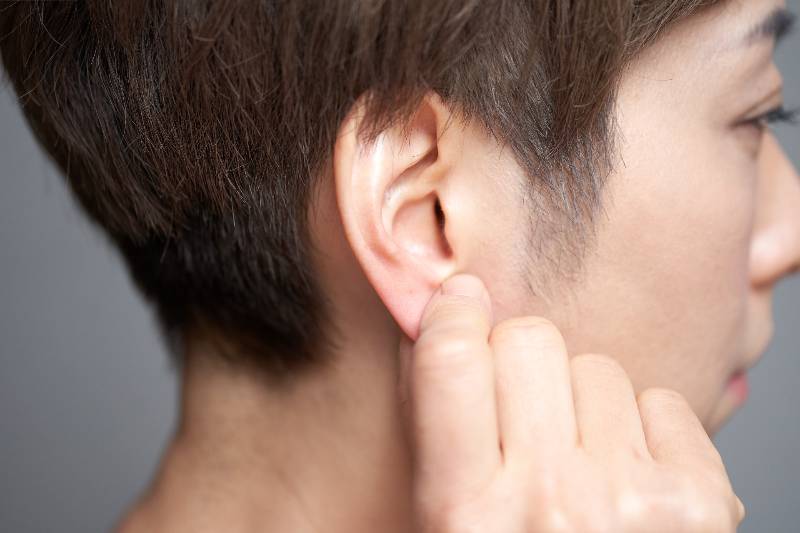Introduction
Hearing loss in children can be a difficult topic for parents to understand and deal with. It can be hard to know what causes it, what the symptoms are, and what treatment options are available. This blog-post is aimed at providing a comprehensive guide to help parents understand everything they need to know about hearing loss in children.Causes of Hearing Loss in Children
There are several reasons that can cause hearing loss in children. Some of the most common causes are genetics, infections, injuries, exposure to loud noises and in some cases, hearing loss may be present at birth which is called congenital hearing loss. This can be caused by various factors such as genetics, and infections during pregnancy.
Symptoms of Hearing Loss in Children
Recognizing hearing loss in children can be a challenge, as many children may not be able to communicate that they are having trouble hearing. Some of the common signs of hearing loss in children include not responding to loud noises, difficulty understanding speech, and not following instructions. It’s essential to get your child’s hearing tested if you suspect that they may have hearing loss.
Treatment Options for Hearing Loss in Children
There are several treatment options available for children with hearing loss, including hearing aids, cochlear implants, and speech therapy. The type of treatment will depend on the type and severity of the child’s hearing loss. Your pediatrician or audiologist can help you determine the best course of action for your child’s treatment.
Types of Hearing Loss in Children
There are two primary types of hearing loss in children: conductive and sensorineural. Conductive hearing loss occurs when there’s a problem with the outer or middle ear, such as fluid in the ear or a blockage. Sensorineural hearing loss occurs when there’s damage to the inner ear or the nerve that carries sound to the brain, which can be caused by various factors like genetics, infections, and exposure to loud noises.
The last word
In conclusion, hearing loss in children can be a complicated issue, but it’s essential to remember that there are many resources and treatment options available. With the right support and solutions, children with hearing loss can lead fulfilling and successful lives. It’s crucial for parents to be informed and proactive in ensuring their child’s hearing health.
Hearing Loss in Children – what are the types?
Hearing loss in children can be a challenging and overwhelming topic for parents to understand. Understanding the different types of hearing loss can help parents make informed decisions about their child’s treatment and care. There are two main types of hearing loss in children: conductive and sensorineural. Conductive hearing loss occurs when there is a problem with the outer or middle ear, such as fluid in the ear or a blockage. This type of hearing loss can often be treated with medication or surgery and is typically temporary. For example, if a child has an ear infection, antibiotics can clear up the fluid in the ear and improve their hearing. Sensorineural hearing loss occurs when there is damage to the inner ear or the nerve that carries sound to the brain. This type of hearing loss is often permanent and can be caused by a variety of factors, including genetics, infections, and exposure to loud noises. Children with sensorineural hearing loss may require the use of hearing aids or cochlear implants to improve their ability to hear. Overall, it is important to understand the different types of hearing loss in children so that parents can make informed decisions about their child’s treatment and care. Early detection and treatment are key to ensuring that children with hearing loss can lead fulfilling and successful lives. Regular hearing tests are recommended to detect hearing loss early and ensure that children receive the right treatment and support.Hearing Loss in Children – what are the Symptoms?
- Difficulty hearing or understanding speech: Children with hearing loss may have trouble hearing or understanding speech, especially in noisy environments. They may also struggle to follow instructions or have trouble answering questions.
- Lack of response to sounds: Children with hearing loss may not react or respond to loud noises or sounds in their environment. This can include not turning their head towards the source of the sound or not responding when someone speaks to them.
- Delayed speech or language development: Children with hearing loss may experience a delay in their speech or language development. They may struggle to articulate words clearly or have trouble constructing sentences.
- Withdrawal from social situations: Children with hearing loss may avoid social situations due to difficulties in communicating and understanding others. They may appear distant or uninterested in activities and interactions with others.
It is important to seek medical attention if you suspect your child may have hearing loss. An audiologist can conduct a hearing test to determine if there is a loss and what type it is. Early intervention and treatment can help children with hearing loss to develop the necessary skills and support they need to thrive.
Hearing Loss in Children – what are the Causes?
Hearing loss in children can be caused by a variety of factors. Some of the most common causes include genetics, infections, injuries, and exposure to loud noises. Congenital hearing loss, which is present at birth, can be caused by genetics and certain infections during pregnancy. In some cases, premature birth or low birth weight can also lead to hearing loss in children. Infections such as meningitis, measles, and mumps can also cause hearing loss in children. These infections can damage the inner ear or the nerve that carries sound to the brain, leading to permanent hearing loss. Injuries, such as head trauma or a punctured eardrum, can also cause hearing loss in children. Exposure to loud noises, such as music concerts, fireworks, and power tools, can also lead to hearing loss in children. Prolonged exposure to loud noises can cause damage to the inner ear, leading to permanent hearing loss. It is important to protect your child’s hearing by limiting their exposure to loud noises and providing them with ear protection when necessary. In some cases, hearing loss in children may be caused by underlying medical conditions, such as otosclerosis, which is a disease that causes the bones in the middle ear to fuse together. It is important to speak with a pediatrician or an audiologist if you suspect your child may have hearing loss, as they can help determine the cause and provide appropriate treatment options.Hearing Loss in Children – what are the Treatments available?
When it comes to hearing loss in children, there are various treatment options available to help them hear better and lead fulfilling lives. Here are a few of the most common treatments for hearing loss in children:- Hearing Aids: Hearing aids are small devices that fit in or behind the ear and amplify sounds to help a child hear better. There are different types of hearing aids available, and your doctor or audiologist can help you determine which type is best for your child based on their specific hearing loss.
- Cochlear Implants: For children with severe or profound hearing loss, cochlear implants may be recommended. This is a surgically implanted device that helps a child hear by bypassing damaged parts of the ear and directly stimulating the auditory nerve.
- Speech Therapy: Children with hearing loss may also benefit from speech therapy. This can help them improve their speech and language skills, and learn to communicate more effectively.
- Assistive Listening Devices: There are also various assistive listening devices available that can help children with hearing loss, such as FM systems or special amplifiers for telephones. These devices can make it easier for children to hear in different environments, like in the classroom or at home.
Hearing Loss in Children – How to prevent it?
Hearing loss in children can be a difficult and overwhelming topic, but the good news is that there are ways to prevent it. By taking a few simple steps, you can help protect your child’s hearing and ensure that they are able to hear and understand the world around them.- Limit exposure to loud noises: One of the biggest causes of hearing loss in children is exposure to loud noises. This can come from a variety of sources, including headphones, music concerts, and even fireworks. To help prevent hearing loss, it’s important to limit your child’s exposure to loud noises. This can be done by providing them with earplugs when they attend concerts or by limiting the volume on their headphones.
- Encourage regular hearing tests: Regular hearing tests are an important part of preventing hearing loss in children. These tests can help detect hearing problems early, when they are more easily treated. Your pediatrician or an audiologist can perform these tests, and they should be done regularly, especially if you have a family history of hearing loss.
- Protect your child’s ears during swimming: Swimming is a great activity for kids, but it can also be harmful to their hearing if they’re not protected. Water can get into the ears and cause infections, which can lead to hearing loss. To prevent this, make sure your child wears earplugs or a swim cap when swimming.
- Get vaccinated: Some infections, such as meningitis and rubella, can cause hearing loss in children. To help prevent these infections, make sure your child is up-to-date on their vaccinations. This will not only protect their hearing but also their overall health.
Conclusion
Introduction:
Hearing loss is a growing problem among children, and it’s often referred to as the “silent epidemic.” This condition can cause a range of difficulties for children, from difficulty in communication to struggling in school. In this blog post, we’ll take a look at what causes hearing loss in children, the symptoms to look out for, the different treatment options available, and most importantly, how to prevent it.
Synonyms:
Hearing loss in children is also known by a few other names, such as pediatric hearing loss, childhood hearing loss, and childhood deafness. No matter what it’s called, it’s a problem that affects many children and can have a major impact on their lives.
Causes of Hearing Loss in Children:
There are many different things that can cause hearing loss in children, including genetics, illnesses, and injuries. Some children may be born with hearing loss, while others may develop it later in life due to exposure to loud noises, infections, or other health problems. In some cases, the cause of hearing loss is unknown.
Symptoms of Hearing Loss in Children:
The symptoms of hearing loss in children can vary depending on the type and severity of the loss. Some common symptoms include not responding to sounds, difficulty understanding speech, and trouble following instructions. Children with hearing loss may also struggle with communication and socializing with others. If you suspect that your child may have hearing loss, it’s important to have them tested by a doctor.
Treatments for Hearing Loss in Children:
There are many treatment options available for hearing loss in children, including hearing aids, cochlear implants, and speech therapy. The best treatment option for your child will depend on the type and severity of their hearing loss. Your pediatrician or an audiologist can help you determine the best course of treatment for your child.
Prevention of Hearing Loss in Children:
Preventing hearing loss in children is an important goal, and there are several things you can do to help. Encourage your child to wear earplugs or other protective gear when they are exposed to loud noises, and make sure they are getting regular check-ups to monitor their hearing. Additionally, try to limit your child’s exposure to loud noises, such as music players and video games, and encourage them to take breaks from these activities.
In conclusion, hearing loss in children is a serious issue that can have a major impact on a child’s development and quality of life. With the right support and solutions, children with hearing loss can lead fulfilling and successful lives. If you suspect your child may have hearing loss, don’t hesitate to seek help from a doctor or audiologist.Top of Form
Conclusion
In conclusion, hearing loss in children is a silent epidemic that is affecting a growing number of children around the world. This can be a difficult and overwhelming topic for parents to understand, but it is important to be aware of the causes, symptoms, treatment options, and preventative measures that are available. Understanding the causes of hearing loss in children can help you to identify the risk factors and take steps to prevent it from happening. Symptoms of hearing loss in children can be difficult to spot, but some common signs include not responding to loud noises, difficulty understanding speech, and difficulty following instructions. There are many different treatment options available for hearing loss in children, including hearing aids, cochlear implants, and speech therapy. The best treatment option for your child will depend on the type and severity of their hearing loss, and your pediatrician or audiologist can help you determine the best course of action. Preventing hearing loss in children is important, as it can greatly impact their development and future success. Some simple steps you can take to prevent hearing loss in children include reducing exposure to loud noises, wearing protective gear when necessary, and having regular hearing tests done. It is important to remember that hearing loss in children can be a complex and challenging issue, but with the right support and solutions, children with hearing loss can lead fulfilling and successful lives. By educating ourselves and taking action, we can work to prevent hearing loss in children and help ensure that they have the best possible future.Resources
Centers for Disease Control and Prevention (CDC) – Hearing Loss in Children The CDC provides a range of resources on children’s hearing loss, including data, causes, types, prevention, and treatment. URL: https://www.cdc.gov/ncbddd/hearingloss/index.html
American Speech-Language-Hearing Association (ASHA) ASHA is a professional organization for audiologists and speech-language pathologists. Their website offers extensive resources on hearing loss in children. URL: https://www.asha.org/public/hearing/hearing-loss-and-its-causes/
Healthy Hearing This site offers a wealth of information about hearing loss, hearing aids, and related topics. They have a specific section dedicated to pediatric hearing loss. URL: https://www.healthyhearing.com/help/hearing-loss/children

